Depakin Chrono BT
- Depakin is part of a group of drugs called antiepileptics (drugs used to treat epilepsy)
- Depakin contains 333 mg of sodium valproate and 145 mg of valproic acid, equivalent to 500 mg of sodium valproate activity. Sodium valproate has a calming effect on the brain.
- Depakin is available in blister packages with 30 split film tablets with white, notched, rectangular shape with rounded corners.
- Depakin is used in the treatment of epilepsy. It is effective in the treatment of many types of epilepsy.
- Depakin can be used in the treatment of mania (outburst seizure) due to bipolar disorders (opposite changes in mental state) and as a sustained treatment in patients responding to treatment.
| Pack size | |
|---|---|
| Potency | 500 Mg |
| Manufacturer | |
| Origin | |
| Generic Name (Ingredient) | In A Divisible Tablet: Equivalent To 500 Mg Sodium Valproate: Sodium Valproate 333 Mg Valproic Acid 145 Mg |
Assuming your emergency circumstances for this product, visit Urgent Quotation page. Besides, for any pharmaceutical questions, please ask us in the comments section.
Description
What are the Depakin Chrono summary information and instructions for use?
Depakin Chrono BT 500 mg long-acting film tablet
It’s taken orally.
- Active ingredient: In a divisible tablet:
equivalent to 500 mg sodium valproate activity:
Sodium valproate 333 mg
Valproic acid 145 mg - Auxiliary substance: Hydroxyropyl methyl cellulose 4000, ethyl cellulose, dehydrated colloidal silica, sodium saccharin, aqueous colloidal silica, polyethylene glycol 6000, talc, titanium dioxide, polyacrilat dispersion (30%) or dry extrusionThis drug is subject to additional monitoring. This triangle will enable quick determination of new safety information. You can help by reporting any side effects that occur. 4 to learn how to report side effects. You can look at the end of the section.If valproate is taken during pregnancy, it can cause birth defects and premature development problems in the baby. If you are a woman of childbearing age, you should use an effective method of contraception throughout the treatment.
Your doctor will discuss this with you, but this is the 2nd time you have issued a instructions for use. You must follow the recommendations in the section. Tell your doctor immediately when you become pregnant or think you may be pregnant.
Before you start using this drug, read this INSTRUCTION CAREFULLY, as it contains important information for you.
- Keep this instructions for use. You may need to read again later.
- If you have any additional questions, please consult your doctor or pharmacist.
- This drug is personally prescribed for you, do not give it to others.
- During the use of this drug, when you go to the doctor or hospital, tell your doctor that you are using this drug.
- Follow exactly what is written in this instruction, do not use high or low doses other than the dose recommended to you about the drug.
Things to consider before using Depakin
DO NOT use Depakin Chrono if:
If:
- If you are allergic to sodium valproate, the active ingredient in DEPAKSIN, or any other substance contained in the drug,
- If you have acute or chronic inflammation in your liver,
- If you or individuals in your family have a history of severe liver inflammation due to drug use,
- If you have a metabolic disease called porphyria, which is extremely rare,
- If you have a metabolic disease in your blood that can cause increased ammonia levels (lack of enzymes in the urea cycle),
- If you have a genetic disease (Alpers-Huttenlocher Syndrome) that develops due to a disorder in the mitochondria (part of the cell), or if your child under 2 years of age is suspected of this disease,
- If you have pancreatic disease
It is not recommended to use it in combination with mefloquine, a drug used to treat malaria, and lamotrigine, a drug used to treat epilepsy.
Use Depakin With Caution In The Following Cases
If:
- Especially if recurrent vomiting, excessive fatigue, abdominal pain, dizziness, weakness, loss of appetite, upper abdominal ache, nausea, yellowing of the skin and eyelids, swelling of the legs, general disfigurement and worsening of your epilepsy condition occur in the first six months after starting treatment with DEPAKIN, tell your doctor immediately.
- In order to detect any deterioration in the function of the liver early, your doctor may want to closely monitor you or your child, especially by conducting regular blood tests during the first six months of treatment.
- If your child is under 3 years of age and taking DEPAKIN treatment at the same time as other antiepileptic drugs, if they have brain damage, mental retardation and/or congenital metabolic or degenerative disease, and if they are having severe seizures, they may be at greater risk.
- If your child is under 3 years old and DEPAKIN should not be used in combination with acetylsalic acid (aspirin).
- If you have systemic lupus erythemazosus disease (a rare immune system disease that holds the skin, bones, joints and internal organs),
- If you have a metabolic disease that can cause increased ammonia levels in your blood, especially hereditary enzyme deficiency,
- If there is a serious impairment in the function of your kidneys (your doctor may want to monitor the functions of these organs at regular intervals during treatment, and may also monitor the valproate level in your blood to adjust the dose of your medication.),
- If you start gaining weight due to increased appetite,
- If you have a congenital lack of an enzyme called camitin palmitoiltransferase (CPT) type II (an enzyme associated with muscle metabolism),
- If your body bleeds or bruises on its own
If you are going to undergo a surgical operation or have dental treatment, tell the doctor that you are using Depakin.
In a small number of patients treated with drugs used to treat epilepsy, the thought and behavior of self-harm or suicide were reported. If such thoughts occur in you at any time, please inform your doctor immediately.
Do not use alcohol during your treatment with Depakin.
If you are pregnant or planning to become pregnant, inform your doctor about this.
Depakin is mainly excreted from the kidneys and can falsely test positive for urine if you are diabetic.
If these fits apply to you, even in any period in the past, please consult your doctor.
Use of Depakin with food and drink
Depakin should preferably be taken with meals.
Pregnancy
Consult your doctor or pharmacist before using the drug.
Important information for women
- Valproate can harm the unborn baby when used during pregnancy.
- Valproate carries a risk when taken during pregnancy. The higher the dose, the greater the risk, but all doses carry risks.
- It can cause serious birth defects and affect the development of the baby during growth. Reported birth defects spina bifıda (spinal bones are not developed properly); malformations (deformities) of the face and skull; abnormalities of the heart, kidneys, urinary tract and genitalia; includes arm and leg defects.
- If you use valproate during pregnancy, you are at a higher risk of giving birth to a baby with a birth defect that requires medical treatment than other women. Because valproate has been used for many years, we know that 10 out of 100 babies born to women who use valproate have birth defects. This rate is 2-3 per 100 births in women with epilepsy.
- It was calculated that 30-40% of preschool children of women who used valproate during pregnancy had problems with early childhood development. Affected children walk late and speak late, their intelligence may be low compared to other children, they may experience language and memory problems.
- Autistic spectrum disorders are more common in children exposed to valproate, and some evidence suggests that more Attention Deficit Hyperactivity Disorder (ADHD) develops in these children.
- If you are a woman who can get pregnant, your doctor should only prescribe you valproate when another treatment is not suitable for you.
- Before prescribing this drug, your doctor will inform you about what can happen to your baby if you become pregnant while taking valproate. If you decide to have children later, you should not stop using your medication until you have contacted your doctor and agreed on a plan to replace your treatment with another possible drug.
- Consult your doctor about the use of folic acid when trying to get pregnant. Folic acid can reduce the risk of general spina bifda and premature miscarriage, which can occur in all pregnancies. However, it is not possible to reduce the risk of birth defects associated with the use of valproate.
First prescription
If your doctor is prescribing you valproate for the first time, your doctor will explain the risks it carries to the baby if you become pregnant. If you are of childbearing age, you should make sure that you use an effective contraceptive method during your treatment. If you need information about the contraceptive method, talk to your doctor or family planning clinic.
Be sure to use an effective contraceptive method.
If you are pregnant or thinking of getting pregnant, tell your doctor.
Unplanned bearer while in treatment
There is a serious risk of developmental problems that can lead to birth defects and serious loss of ability in the babies of mothers who have used valproate. If you are using valproate and think you may be pregnant or may have stayed, contact your doctor immediately. Do not stop taking the drug until your doctor tells you.
Consult your doctor about the use of folic acid. Folic acid can reduce the risk of general spina bifda and premature miscarriage, which can occur in all pregnancies. However, it is not possible to reduce the risk of birth defects associated with the use of valproate.
If you are pregnant or thinking of getting pregnant, tell your doctor.
Do not stop using valproate until your doctor tells you.
If you find that you are pregnant during your treatment, consult your doctor or pharmacist immediately.
Lactation
consult your doctor or pharmacist before using the drug.
Consult your doctor if you can breastfeed your baby while using Depakin.
Vehicle and machine use
Some people have symptoms such as dizziness and dizziness early in Depakin treatment or when Depakin is used in combination with other epilepsy drugs, so be careful when driving or using a machine.
Use in combination with other drugs
- Neuroleptic drugs used to treat psychological disorders such as ketiyapin and olanzapin
- Drugs used to treat depression
- Sedatives used to relieve anxiety and insomnia
- Other drugs used to treat epilepsy (phenobarbital, phenytoin, primidon, lamotrigine, carbamazepine, paralybamate, topiramate and rufınamide)
- Zidovudin, lopinavir and ritonavir, which are used to treat infections caused by aids and HIV
- A drug called mefloquine used to prevent and treat malaria
- Aspirin (salicylat group drugs)
- Nimodipin (a drug used to treat heart conditions)
- Drugs that prevent blood clotting
- A drug called simethin used to treat stomach sores (ulcers)
- Rifampisin, a drug used to treat tuberculosis
- Some antibiotics (such as erythromymene, imipenem, panipenem, meropenem, aztreonam)
- Cholesthiramin, a drug used to lower blood fat (cholesterol)
- Acetazolamide used to treat intraocular pressure increase (glaucoma)
- If you are taking drugs or alcohol that impair liver function, the toxic effect of valproate on the liver may increase.
These drugs can change the effect of DEPAKIN and cause undesirable effects.
Please note that these statements may also be applied to products that have been used some time ago or will be used some time in the future.
If you are currently using or have recently used any prescription or over-the-counter medication, please inform your doctor or pharmacist about them.
How to use Depakin Chrono
Valproate therapy should be initiated and monitored by a doctor specializing in the treatment of epilepsy or bipolar disorder.
Depakin Chrono is the extended salimli formulation of Depakin and ensures that the blood level is more regular in a 24-hour period.
Instructions for appropriate use and dose/frequency of application:
Your doctor will determine the dose of your medication depending on your illness.
The most appropriate dose for you is determined by taking into account your age, body weight and response to the drug. Therefore, your doctor may call you for regular check-ups and, if necessary, request tests that measure the level of the drug in your blood.
The use of the long-acting form (Depakin Chrono BT 500 mg) allows the drug to be administered once a day; Single dose application per day is possible in cases of epilepsy, where full seizure control is provided.
Starting the treatment of Depakin (oral application):
- According to today’s information, it is recommended to maintain the same daily dose when switching from enteric coated forms of my Sodium Valproate to its long-acting form (Depakin Chrono BT 500 mg).
- In patients who do not undergo another antiepileptic (used in the treatment of epilepsy), the dose is increased 2-3 days apart and the most appropriate dose is reached within one week.
- When switching from treatment to Depakin treatment with another antiepileptic (used in the treatment of epilepsy), the optimal dose should be adjusted by gradually increasing the dose of Depakin within two weeks and the treatment with other drugs should be reduced.
If necessary, the addition of another antiepileptic (used in the treatment of epilepsy) should be done gradually increasing the dose.
Dose:
The initial dose is usually 10-15 mg/kg per day, after which it is reached to the optimal dose.
average dose of 24 hours:
- 20-30 mg/kg (enteric coated tablet or Chrono form should be preferred in adolescent children and adults).
- 30 mg/kg in dairy children and children (oral form of german solution should be preferred).
Prevention and treatment of mania due to bipolar disorders:
The recommended initial dose is 20 mg/kg of valproate per day.
The recommended dose for the continuation of bipolar disorders is from 1000 mg to 2000 mg per day. In exceptional cases, the dose can be increased so that it is no more than 3000 mg per day. Preventive treatment will apply the lowest effective dose to your doctor.
Application path and method:
It is applied orally.
Depakin Chrono CT’s divisible allows for a fine dose adjustment. It is recommended to store the split tablet in the special compartment on the lid. Tablets should not be crushed, swallowed without chewing, and preferably taken with food.
Depakin treatment is a long-term treatment. Your doctor will let you know how long your treatment will take with Depakin.
Different age groups:
Use in children:
Epilepsy:
- In children, the dosage is 30 mg/kg/day (oral solution form should be preferred).
- It should be used for complex partial seizures (a type of epilepsy) for ages 10 and up.
Depakin Chrono CT 500 mg is for use by adults and children over 17 kg; It should not be used in children under the age of 6.
oral solution form should be preferred in children under 6-11 years of age.
The safety and effectiveness of valproate in the prevention and treatment of mania due to bipolar disorders has not been evaluated in patients under the age of 18.
Use in elderly:
In the elderly, the dose of Depakin should be regulated according to the control of seizures.
Exceptions:
Kidney/Liver failure:
If you have kidney or liver failure, your doctor may need to reduce the dose of Depakin.
If you have the impression that the effect of Depakin is very strong or weak, talk to your doctor or pharmacist.
If you used more Depakin than you should have:
The overdose of Depakin can be dangerous.
If you have used more than you should have used from Depakin , talk to a doctor or pharmacist.
If you forget to use Depakin :
If you forget to take one of the daily doses, take it as soon as you remember. However, if the time of the next dose is close, skip the dose you forgot and take the next dose normally, as recommended by the doctor.
If more than one dose is skipped, a doctor should be consulted immediately.
Do not take double doses to balance forgotten doses.
Effects that may occur when treatment with Depakin is terminated
Treatment should be carried out regularly, no changes should be made or discontinue without consulting the doctor. Treatment needs to be discontinued gradually. Abrupt cessation of treatment (or a large reduction of the dose) can lead to the reappearation of seizures.
What are the side effects of Depakin Chrono?
Like all drugs, there may be side effects in people who are sensitive to the substances contained in Depakin.
Side effects are listed as shown in the following categories:
| Prevalent
Unsymnam Rare Very rarely Unknown |
: less than one in 10 patients, but more than one in 100 patients.
: less than one in 100 patients, but more than one in 1000 patients. : less than one in 1000 patients, but more than one in 10000 patients. : less than one in 10,000 patients. (cannot be guessed based on available data) |
If any of the following occurs, stop using Depakin and immediately notify your doctor or contact the emergency department of the hospital closest to you:
- If you start breathing hard and wheezing
- If an swelling occurs in your face, tongue or throat, which will make it difficult to swallow or breathe
- If your body experiences redness and rashes on your skin along with common itching (usually on the eyes, lips, neck and sometimes on the hands and feet)
- If there is a drug-induced rash, fever, growth in the lymph nodes.
- If skin rashes appear on your skin in the form of pale, pink/red rings in the middle. These rashes, which can manifest themselves in the form of itchy, scaly or water-filled bubbles, can be seen on the palms or soles. These can be a symptom of a serious alegia called ‘erythema multiforme’ that develops against the drug.
- If flu-like symptoms and fever appear on the skin around the lips, eyes, mouth, nose and genitals, along with water-filled blisters or bleeding, these can be symptoms of Stevens-Johnson Syndrome.
- If severe bubbly rashes occur in various parts of the body and the appearance of the red layer underneath the skin, these can be symptoms of a condition called ‘Toxic epidermal necroliz’.
If you have one of these, you have a severe allergic reaction to Depakin Chrono.
- Liver and pancreatic problems can manifest themselves as a disease that suddenly appears in the first six months of treatment. In this case, frequent nausea and vomiting, feeling very tired, jaundice (yellowing of the skin or eye whites), loss of appetite, edema (especially swelling in the legs and feet, sometimes in other parts of the body), worsening of seizures (remitts) or a general feeling of badness can be seen. If you experience these symptoms, your doctor may ask you to disconthane DEPAK.
These are all very serious side effects. You may need urgent medical attention or hospitalized.
All of these very serious side effects are quite rare.
If you notice any of the following, please notify your doctor immediately or contact the emergency department of the hospital closest to you:
Prevalent:
- Impaired blood clotting (bleeding does not stop)
- Decrease in the number of blood scales (thrombocytopenia) (may manifest by prolonged bleeding, spontaneous bleeding and decay in your body)
- Decrease in the number of red blood cells (anemia) (can manifest itself by paleness, weakness, hair loss)
- Nausea, vomiting, weakness and confusion due to decreased sodium in the blood (hyponatremia)
- Extrapyrmidal disorders (uncontrollable tremors, wobbles, restlessness and facial movements), dizziness, sleepiness, seizures, memory impairment, headache, involuntary movements in the eye (nistagmus)
- Dysfunction in the liver
Unsym pervasive:
- Decrease in the number of all blood cells (pancytopenenea) or decrease in the number of white blood cells (leukopenia) (may manifest itself with more frequent infection)
- Inappropriate ADH secretion syndrome (symptoms such as fatigue, loss of appetite, headache, vomiting, confusion of the mind, even seizures), hyperandrogenism (bristles on the face and body in women, acne, male-type baldness)
- Frequent or heavier seizures, feeling dizzy, absent-mindedness, coma (especially
- If the drug containing phenobarbital or topiramate active substances is used with DEPAKIN, or if the dose of DEPAKIN is suddenly increased)
- Fluid collection around the lungs (pleural effusion) (shortness of breath can manifest itself with chest pain, fever, cough, especially when breathing deeply)
Rare:
- Bone marrow failure, a significant decrease in the number of white blood cells in the blood or their complete deficiency (agranulocytosis), anemia in which red blood cells are larger than normal (macrocytic anemia)
- Symptoms such as difficulty losing weight, irritability, fatigue, dry skin, constipation, headache due to under-production of thyroid hormone in the body (hypothyroidism)
- Reversible dementia, impaired mental function
Unknown:
Inflammation of the blood vessels (vasculitis): Redness of the skin due to narrowing or obstruction of the blood vessels.
These are all serious side effects. Urgent medical attention may be required.
If you notice any of the following, tell your doctor:
It’s very common:
- Dithering
- Nausea
Prevalent:
- Especially vomiting at the beginning of treatment, gum growth, wound in the mouth, upper abdominal pain, diarrhea. To prevent these symptoms, you can take tablets during meals.
- Temporary and dose-related hair loss (hair may be curly than before when it comes back)
- Confusion, aggression, restlessness, attention disorder, hallucinations (seeing or hearing things that don’t exist)
- Dizziness
- Deafness
- Painful menstruation
- Weight gain
- Nail and nail bed disorders
Unsym pervasive:
- Impairment (ataxia), numbness (paresthesia) in the balanced and purposeful conduct of movements
- Redness and rashes on your skin, hair disorders (such as hair structure abnormalities, hair color changes, hair elongation abnormalities)
- Weakening of the bones, fractures (can be seen in patients treated for a long time in Depakin)
- Menstruation
- Swelling of the feet and legs (mild edema)
- Renal failure
- Hypothermia (decreased body temperature)
Rare:
- Changes in the level of ammonia in the blood. In this case, nausea, balance and coordination problems, feeling sluggish or less alert can be seen
- Signs of anemia due to the inability of blood cells to mature (myelodysplastic syndrome) in the bone marrow
- Abnormal behavior, excessive mobility, learning disorder (these symptoms occur mostly in children)
- Flaking on the skin, pains in the wrist and finger joints (these may be symptoms of a disease called systemic lupus erythematosus), rhabdomyolysis (muscle disorder due to muscle tissue damage)
- Urinary incontinence, tubulointerstial nephritis (a type of kidney inflammation)
- Infertility in men
- Reduction of blood clotting factors (this may occur in blood tests)
- Biotin/biotinidase deficiency (lack of vitamin B7 and related enzyme)
- Obesity
Very rarely:
- Pimple
- Women’s hair, including body and face
- Due to hormonal irregularity or change in men, the breasts grow excessively and sometimes secrete milk
Unknown:
Increased alertness and behavioral changes, which can sometimes be seen as aggressive, over-mobile, and unusual or inappropriate behavior.
These are mild side effects of Depakin. Usually the severity of these side effects is not serious and after a while the situation can return to normal. Some of these side effects may require medical treatment.
If you experience any side effects not mentioned in this instructions for use, inform your doctor or pharmacist.
Reporting side effects
If any side effects occur that are included in the instructions for use or not, talk to your physician, pharmacist or nurse. In addition www.titck.gov.tr, report any side effects you encounter to the Turkish Pharmacovidinance Center (TÜFAM) by clicking on the “drug Side Effect Notification” icon on the website or by calling the side effect notification line O 800 314 00 08. By reporting the side effects that occur, you will contribute to learning more about the safety of the drug you are using.
Storage of Depakin
Store Depakin in places and packaging out of the reach of children
Store at room temperature (below 25°C) and maintaining moisture.
Use in accordance with the expiration date.
Do not use Depakin after the expiration date specified on the packaging.
| Licensee: | Sanofi Aventis france licensed with
Sanofi Health Products Ltd.Sti No.: 193 Levent Istanbul |
| Production location: | Zentiva Health Products San. and Tic. Inc.
Small-time 39780, Luleburgaz |
What is Depakin Chrono detailed drug information?
| Bar code | 8699809037786 |
| ATC Code | N03AG01 |
| ATC Name | valproic acid |
| Active Item | SODIUM VALPROAD + VALPROIC ACID |
| Reference | – |
| Price Protection | PRICE-PROTECTED PRODUCT |
| Price Decree | 0 – NOT EXEMPT FROM DISCOUNT |
| Equivalent | 1 – ONE-TO-ONE ES URUN AND ES URUNU VAR |
| Account Name | SANOFİ HEALTH PRODUCTS LTD. STI. |
| Unit Quantity | 500 |
| Unit Gen. | MG |
| Packing Quantity | 30 |
| Prescription | NORMAL RECETE |
| Imported / Manufactured | MANUFACTURED |
| Source Country | FRANCE |
What is the Depakin Chrono ATC class?
- N – CYN SYSTEM
- N03 – ANTI-ANALYSIS
- N03A – ANTI-ANALYSIS
- N03AG – OIL ASSI DERIVATIVES
- N03AG01 – VALPROIC ACID
Use the form below to report an error
Please answer the questions as thoroughly and accurately as possible. Your answers will help us better understand what kind of mistakes happen, why and where they happen, and in the end the purpose is to build a better archive to guide researchers and professionals around the world.
The information on this page is not intended to be a substitute for professional medical advice, diagnosis, or treatment. always seek the advice for your physician or another qualified health provider with any questions you may have regarding a medical condition. Always remember to
- Ask your own doctor for medical advice.
- Names, brands, and dosage may differ between countries.
- When not feeling well, or experiencing side effects always contact your own doctor.
Cyberchondria
The truth is that when we’re sick, or worried about getting sick, the internet won’t help.
According to Wikipedia, cyberchondria is a mental disorder consisting in the desire to independently make a diagnosis based on the symptoms of diseases described on Internet sites.
Why you can't look for symptoms on the Internet
If diagnoses could be made simply from a textbook or an article on a website, we would all be doctors and treat ourselves. Nothing can replace the experience and knowledge of specially trained people. As in any field, in medicine there are unscrupulous specialists, differences of opinion, inaccurate diagnoses and incorrect test results.

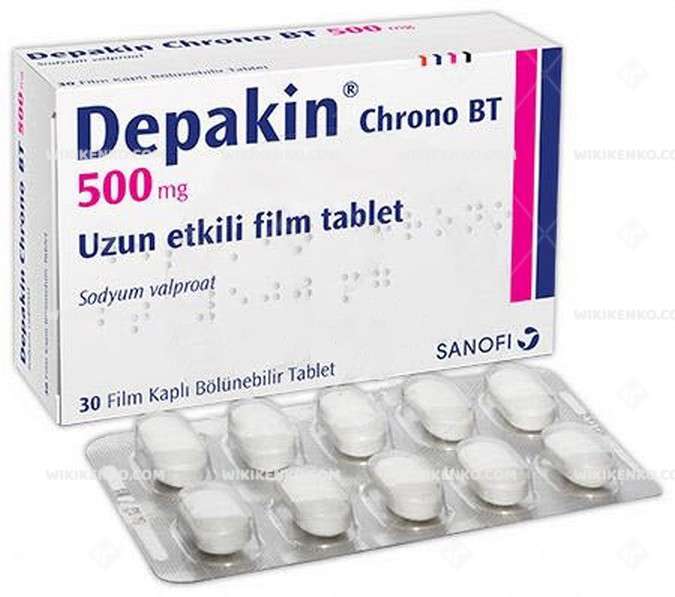
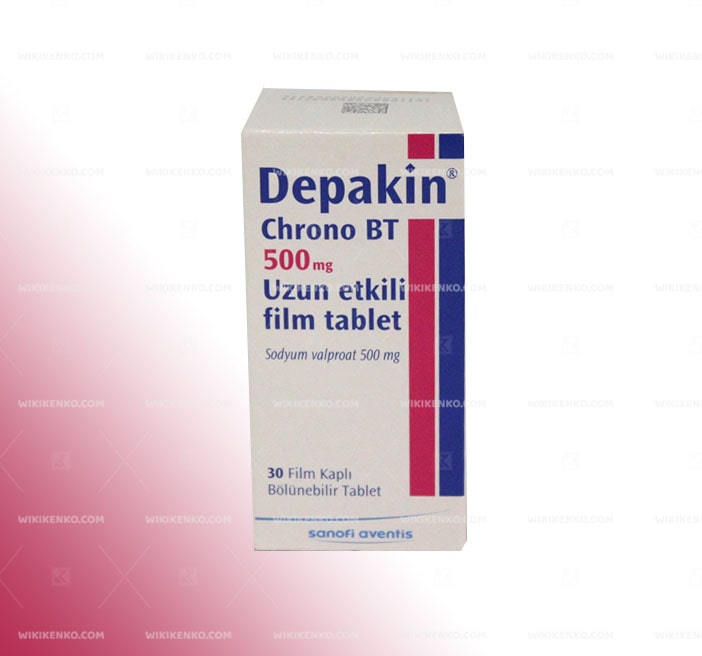

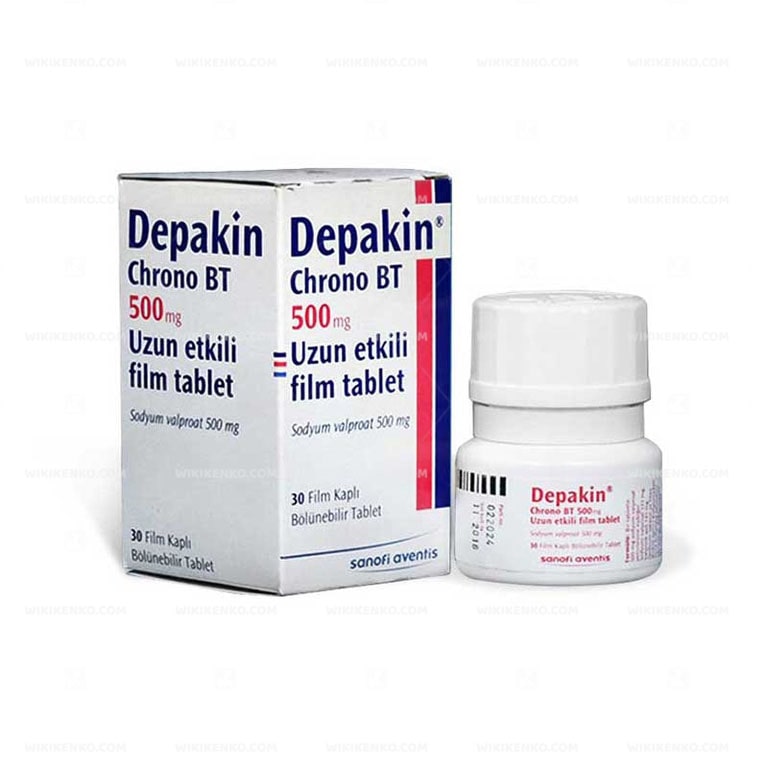
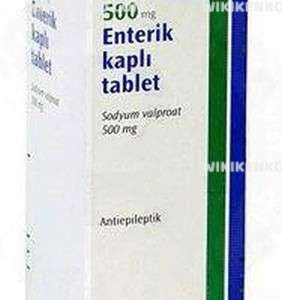
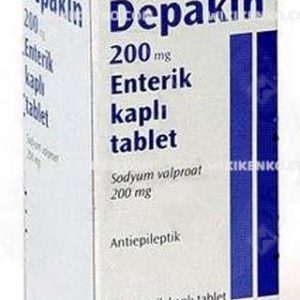
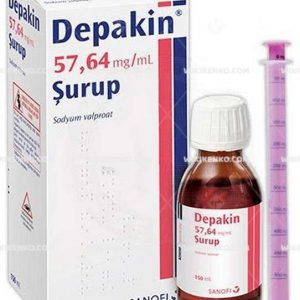
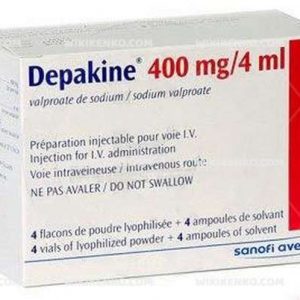

Reviews
There are no reviews yet.